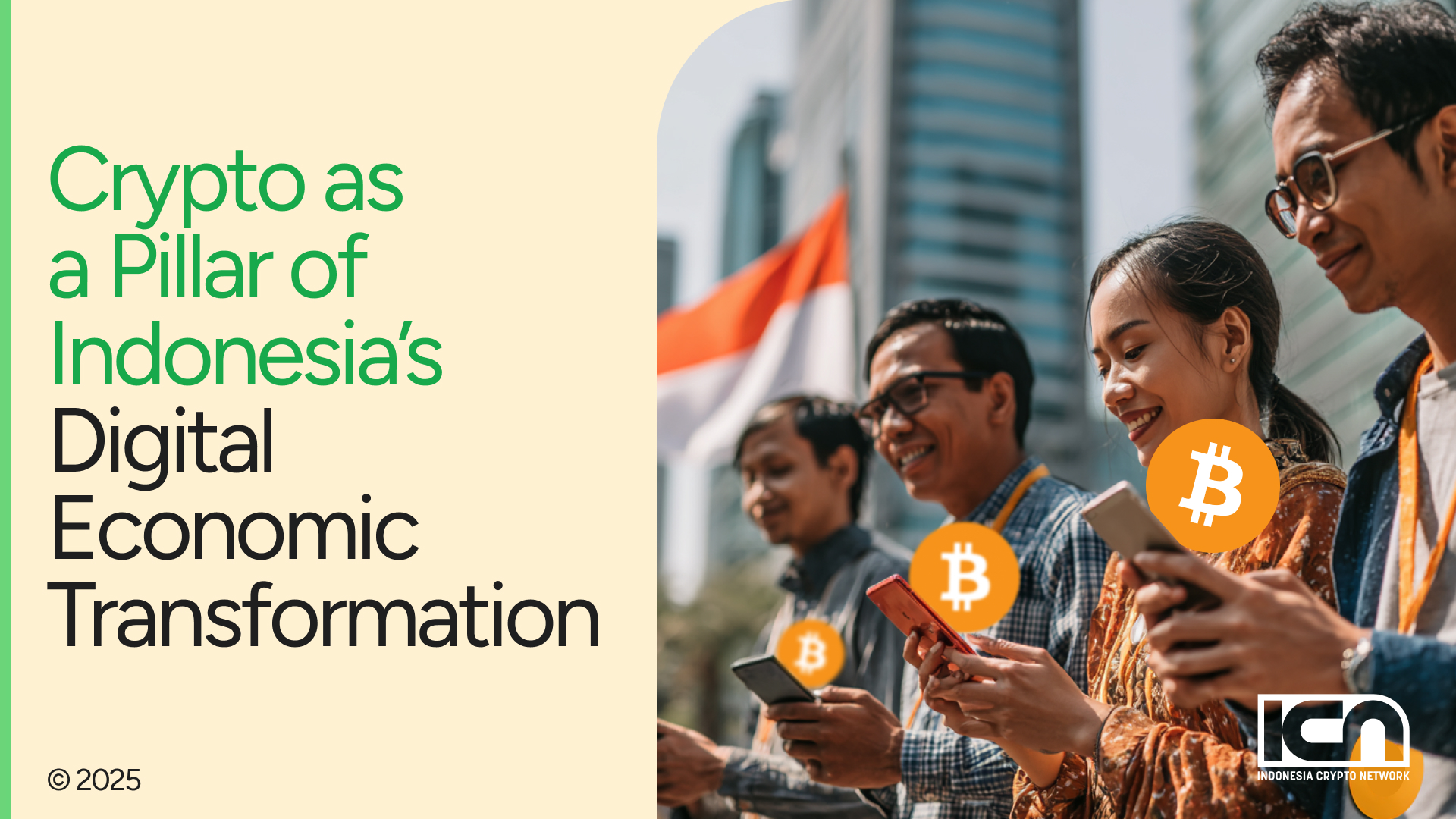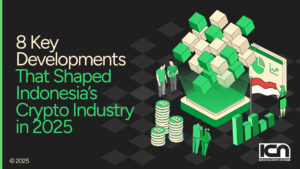Indonesia’s cryptocurrency industry has evolved from speculative hype into a structural pillar of the nation’s digital transformation strategy. The Financial Services Authority (OJK) now regulates crypto assets as Digital Financial Assets (DFAs), formally integrating them into the national financial system through legal, economic, and infrastructure reforms. With over 15 million users, surging tax revenues, and clear regulatory guidelines, crypto plays a vital role in advancing Indonesia’s Vision 2045 digital economy roadmap.
Surging Economic Impact: From Niche to National Contributor
A 2024 study by LPEM FEB UI estimated that crypto-related activity contributed Rp70.04 trillion (approximately USD 4.4 billion) to Indonesia’s GDP, equivalent to 0.32% of national output. The same study found the industry created over 333,000 jobs across blockchain development, digital asset exchanges, and infrastructure platforms.
These numbers signal a significant macroeconomic shift. Not only is crypto creating employment opportunities in traditionally underserved regions, it’s also helping to stimulate the growth of Indonesia’s digital-native workforce. Many of the jobs generated are in engineering, marketing, analytics, and customer experience—fields that align closely with Indonesia’s youth demographic and national upskilling goals.
In a statement, Pandu Sjahrir, Chairman of the Indonesian Fintech Association (AFTECH), said the numbers illustrate that “crypto is no longer just a tech trend, but a new economic engine capable of driving job creation, expanding financial inclusion, and boosting national revenue—if supported by good governance.”
OJK also reported that crypto user growth outpaced traditional stock investors, with over 16 million registered users by September 2025. Tax revenues from crypto trading jumped 181% year-on-year, reaching Rp620 billion in 2024. This surge in retail participation not only boosts fiscal receipts but also reflects crypto’s role as a gateway to investing for millions of Indonesians under 30.
Read more: How to Run a $10K Crypto Marketing Campaign in Indonesia
From Commodity to Digital Financial Asset
A core driver of institutionalization has been regulation. Following the passage of Law No. 4/2023 (UU PPSK), Indonesia reclassified crypto from a commodity to a DFA under the jurisdiction of OJK. In January 2025, OJK issued POJK 27/2024, a comprehensive regulation for exchanges, custodians, brokers, and clearinghouses operating in crypto markets.
Under these rules, crypto platforms must meet strict capital and governance requirements—including Rp100 billion in minimum paid-up capital and pass regulatory fit-and-proper tests for senior executives. OJK also manages the national whitelist of approved tokens for trading in Indonesia.
As of October 2025, 1,421 crypto assets are legally tradable in the country—nearly doubling the number previously regulated under Bappebti. This whitelist mechanism ensures that only vetted tokens with audited smart contracts and viable ecosystems can be offered to Indonesian users, adding layers of transparency and risk mitigation.
AFTECH also encouraged the government to refine tax policies and expand whitelist assets to include domestic stablecoins and real-world asset (RWA) tokenization, noting this is essential to remain globally competitive. In his remarks, Sjahrir added that such improvements must go hand in hand with stronger investor protection and digital literacy, stating that digital assets “should not be seen merely as risk, but as a real economic opportunity for Indonesia.”
Read more: Indonesia’s Crypto Transactions Hit IDR 109.29 Trillion in Q1 2025
Toward a Legal, Inclusive, and Innovative Crypto Ecosystem
Indonesia’s approach to crypto regulation is not just about containment—it is about empowerment. Policymakers aim to position the country as a regional hub for digital financial innovation by fostering a safe but flexible environment. Through OJK, the government is rolling out licensing tiers, investor classification systems, and real-time supervision tools to strengthen oversight.
These steps create fertile ground for innovation. AFTECH has recommended sandbox mechanisms where blockchain and fintech startups can test products with limited exposure under supervision. This model balances experimentation with consumer safety, and aligns with Indonesia’s broader tech ecosystem strategy.
Importantly, the crypto sector is also making strides in financial inclusion. Most users are first-time investors aged 18–30, many of whom use crypto wallets before accessing formal banks. Crypto is fast becoming a tool for democratizing finance, offering access to high-yield instruments and cross-border value transfer for Indonesia’s digitally connected but financially underserved population.
Strategic Entry Point: Expanding into Indonesia Through ICN
For global protocols, exchanges, and institutional investors looking to enter Southeast Asia’s largest archipelago, Indonesia Crypto Network (ICN) provides a trusted entry point. ICN helps projects localize, navigate regulatory compliance, build stakeholder relations, and scale responsibly in alignment with OJK regulations and industry norms. With Indonesia’s crypto sector fully integrated into its digital economy strategy, working with ICN ensures international players can engage the market both effectively and legally.
From Hype to Infrastructure
Indonesia’s crypto ecosystem is no longer peripheral it is embedded in the country’s economic modernization plan. Supported by data from LPEM FEB UI, governed by clear OJK frameworks, and increasingly included in fiscal policy, crypto is helping drive job creation, tax revenue, and financial inclusion.
With 20+ million users, expanding legal infrastructure, and policy momentum, digital assets have graduated from being speculative tools to becoming part of the nation’s long-term economic infrastructure. As Indonesia moves closer to its Vision 2045 goals, crypto is poised to remain a vital component of its digital future.




